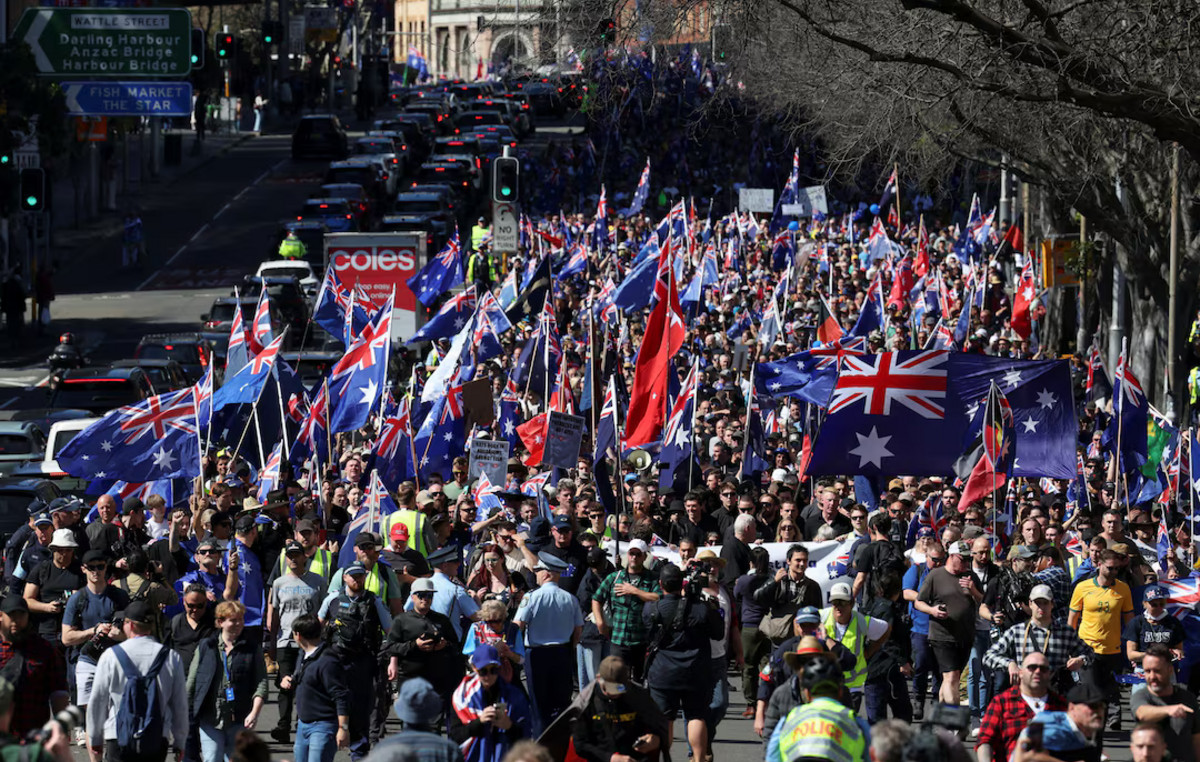Three key US allies in the Middle East adhered to a United Nations General Assembly (UNGA) resolution condemning Russia’s invasion of Ukraine this week, but their votes belied the tension that lies beneath the surface.
While the UAE voted in favor of the UNGA resolution, it abstained on the previous UN Security Council resolution condemning Russia. The Security Council’s decision was likely due to its frustrations with the Joe Biden government’s refusal to classify the Houthis as a foreign terrorist entity in the region and its desire to remain in the good graces of Russia, which has become an ally in recent years. years old.
The Saudis voted in favor of the resolution but are keen not to alienate Moscow and have resisted pressure from the Biden administration to pump more oil, mainly because of an OPEC+ deal they struck with Russia to limit daily production. Crown Prince Mohammed bin Salman is also angry with President Joe Biden for refusing to speak to him about his alleged involvement in the murder of Saudi journalist Jamal Khashoggi – the Saudi government still denies that the Crown Prince played any role in the journalist’s death. .
Perhaps the most complex is the case of Israel. One could be forgiven for thinking that, as the United States’ closest ally and the region’s only democracy—however flawed—Israel’s unwavering support for the Ukrainians would be given.
But Israel’s unique interests in the region are forcing Jerusalem to take a course that tries to avoid alienating Russian leader Vladimir Putin and Biden at the same time. As Putin’s bloody campaign in Ukraine intensifies, however, Israel may find itself under greater pressure to adopt a tougher anti-Russia stance.
Although Israel voted in favor of the UNGA resolution this week, it was preceded by a period of clumsy maneuvering by Israeli leaders to avoid harsh personal condemnation of Putin’s invasion. On February 24, shortly after Russian troops set foot on Ukrainian soil, Foreign Minister Yair Lapid called the invasion “a serious violation of international order” – but did not mention Putin by name.
More recently, in response to a Russian attack on Kiev that took place in the vicinity of the Babyn Yar Holocaust memorial, Lapid “denounced the damage” but did not name Russia as the perpetrator of the damage. Meanwhile, Prime Minister Naftali Bennett, allegedly seeking to play a mediating role in the crisis, has so far avoided using the words “Putin”, “Russia” and “condemn” in the same sentence. Although he said: “We are praying for the well-being of Ukraine’s citizens and hope that more bloodshed will be avoided,” Bennett only agreed to send humanitarian aid – including medical equipment, water purification systems, tents, blankets and bags. to sleep.
Ukrainian President Volodymyr Zelensky has asked the Israeli government to supply weapons as well, but the Israelis have so far been opposed. On Thursday, the Ukrainian president, himself a Jew, urged Israel to adopt a stronger moral stance and offered a few words to Bennett: “I don’t feel like he’s wrapped in the Ukrainian flag.”
Israel’s hesitation over Ukraine is motivated, in part, by the need to maintain day-to-day cooperation with Russia in Syria. The Russians, who control much of Syrian airspace, have given Israel wide latitude to strike Iranian, Syrian and Lebanese targets in Syria. The arrangement involves a deconfliction mechanism that prevents accidental conflicts between Russian and Israeli forces through a real-time communication channel. Add to that Israel’s perennial concern for the well-being and safety of Russia’s 150,000 Jews, and the case for maintaining good relations with Putin is strong.
At the same time, Israel has other critical interests to protect. As a state created as a safe haven for the world’s Jews after the Holocaust, Israel pays a price for appearing to falter in the face of a predatory power that preys on a weaker state.
According to Axios, the Biden administration has understood Israel’s need for balance, but has also pressed Israel to “take a clear stand” – arguing that this is a matter of “right and wrong”. And certainly Israelis know that this is the most serious international crisis of the Biden presidency so far.
Perhaps Bennett seriously believes that by refraining from attacking Putin head-on, he will maintain his supposed role as an honest broker. While Bennett needs to protect Israel’s interests, he also has another role to play as one of the United States’ closest allies and as a democracy in the face of Russian aggression.
As Putin’s invasion claims more innocent lives and the Ukraine crisis further threatens American, European and global interests, Bennett certainly knows that Biden and many in the international community expect Israel to act accordingly.
Source: CNN Brasil
I’m James Harper, a highly experienced and accomplished news writer for World Stock Market. I have been writing in the Politics section of the website for over five years, providing readers with up-to-date and insightful information about current events in politics. My work is widely read and respected by many industry professionals as well as laymen.







